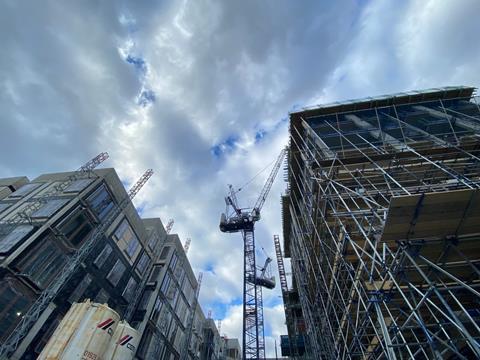Two regulators sign a ‘memorandum of understanding’ setting out how they will work together
The Regulator of Social Housing (RSH) and the Building Safety Regulator (BSR) have signed a ‘memorandum of understanding’ setting out how they will co-operate with each other and share information about safety risks.

Under the deal, the details of which were published this week, the RSH has agreed to where possible notify the BSR in advance of its regulatory judgements where “there are building safety concerns or other matters that should be brought to the attention of the BSR.” This applies where registered providers are responsible for higher-risk residential buildings, defined as higher than 18 metres or seven storeys.
The two regulators have also agreed to share information and data on registered providers and accountable persons and co-ordinate and share insight on specific cases, particularly where both are engaging with the same providers because serious failures have been suspected or identified.
The agreement means they will “share intelligence on emerging sector risks and developments” where relevant to their respective roles including themes relating to building safety. The BRS will notify RSH when a compliance notice has been served or before applying for a special measures order. The two will share information about enforcement action and they will allow each other to input into publications that may affect the other’s functions.
The MoU also includes a pledge to communicate at early stages on issues, meet regularly, ensure consistency of communication and seek to promote understanding about their respective roles.
>>See also: Is the government’s Building Safety Regulator shake-up enough to fix the delays?
The MoU document said the two bodies have a duty to co-operate under the Building Safety Act.
It said: “This MoU sets out the principles for how these duties will be delivered and how they will underpin the relationship between RSH and the BSR who have a shared commitment to working together to support improvements in building safety in the social housing sector.”
The MoU does not create or impose legally-binding obligations, but both organisations are committed to working to its provisions.
RSH and BSR: their respective roles explained
Regulator of Social Housing
The RSH regulates registered providers of social housing, including non-profit housing associations, councils, and for-profit providers in England.
It sets governance and viability and consumer standards and issues judgements on providers, with the ability to use enforcement powers if they do not comply.
Building Safety Regulator
The BSR has a duty to keep under review the safety and standards of all buildings in England. It is also the building control authority for higher-risk buildings, defined as those with at least two residential units that are at least 18 metres or seven storeys in height. During design and construction, BSR is responsible for overseeing compliance with building regulation requirements. During occupation, BSR regulates those who are responsible for the management of building safety risks.
BSR also oversees and monitors the performance of all Building Control Bodies in England and the competence of professionals delivering building control functions. BSR currently sits in the Health & Safety Executive, but its powers will shortly be transferred to a new board set up by the Ministry of Housing, Communities and Local Government.











No comments yet